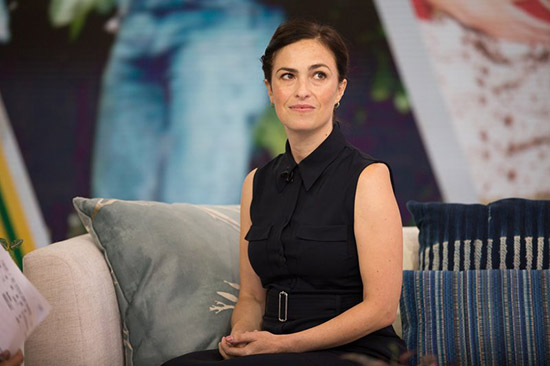
|
看過喬布斯傳記的人都知道,,喬布斯的人格是很復(fù)雜的,他雖然功成名就,,但性格乖僻殘忍,。在他女兒那本讀來令人心碎的童年回憶錄《小人物》(Small Fry)的最后幾頁,麗莎·布倫南·喬布斯直面了一個(gè)尚無答案的關(guān)鍵問題,。她寫道:“當(dāng)人們談及我父親的殘忍時(shí),,他們有時(shí)認(rèn)為,殘忍與天才是有關(guān)聯(lián)的,?!边@種“殘忍是殘忍者的通行證”理論,與很多硅谷人的人生哲學(xué)不謀而合——要想成就偉大的事業(yè),,是不是必須要像喬布斯那樣,,當(dāng)一個(gè)混蛋呢? 對(duì)于這個(gè)問題,,布倫南·喬布斯的答案是:“或許正是殘忍保護(hù)了他創(chuàng)造力的部分,。因此,妄圖通過變殘忍以使自己接近天才,,就像盲目模仿他說話的調(diào)子,、走路的樣子或者喬布斯的其他怪癖一樣,是非常愚蠢的,?!?/p> 在這本400多頁的書中,描述喬布斯的商業(yè)經(jīng)營的部分大概只有一頁紙的篇幅,。但這仍然是一本很有感染力的書,。喬布斯的信徒們熱衷于談?wù)撍奶觳藕枉攘Γ约八偰茏稣_的事的能力,。然而他們往往會(huì)忽略甚至故意無視喬布斯的陰暗面,。布倫南是喬布斯的第一個(gè)孩子,但他一直否認(rèn)布倫南是自己的孩子,,直至最后對(duì)簿公堂才被迫接受現(xiàn)實(shí),。即便如此,布倫南仍能看到喬布斯的優(yōu)點(diǎn)。她用優(yōu)美的筆觸,,娓娓講述了從她小時(shí)候直到喬布斯去世那天父女兩人的愛恨糾葛,。這段經(jīng)歷絕對(duì)是喬布斯的人生污點(diǎn),任何一個(gè)為人父母,、兄弟姐妹和子女者讀了這本書,都不可能不同情其作者,,痛斥故事所圍繞的這個(gè)人物,。 如果你讀這本書的目的,是成為一名更好的經(jīng)理人,,或者想通過本書了解未來的趨勢(shì)或蘋果的秘史,,那這本書并不適合你。而如果你想深入了解在這個(gè)男人的公司改變世界的同時(shí),,他是如何摧毀了一個(gè)弱小女孩的心靈,,那么我強(qiáng)烈推薦你閱讀這本書。 說到蘋果,,《華爾街日?qǐng)?bào)》(The Wall Street Journal)上周末發(fā)表了一篇很有見地的文章,,解釋了如何從蘋果上周的地理擴(kuò)張中看出它的服務(wù)、手機(jī)和原創(chuàng)內(nèi)容戰(zhàn)略的新動(dòng)向,?!霸谔O果進(jìn)軍視頻編輯領(lǐng)域的過程中,卡爾弗城為蘋果在好萊塢提供了一個(gè)陣地,;西雅圖是一個(gè)機(jī)器學(xué)心中心,,蘋果可以在這里開發(fā)算法,對(duì)流媒體播放列表進(jìn)行定制,,并對(duì)Siri進(jìn)行改進(jìn),。圣迭戈和奧斯汀能夠?yàn)樘O果提供半導(dǎo)體工程師,他們可以加大定制芯片的研制力度,,幫助蘋果從iPhones,、iPads和Mac等產(chǎn)品中壓榨出更多的錢?!?/p> 此外,,我還推薦大家讀一讀《華爾街日?qǐng)?bào)》的一篇文章,它深入解析了通用電氣公司何以在杰夫·伊梅爾特的領(lǐng)導(dǎo)下走向末路,?!敦?cái)富》雜志的專欄作家杰夫·科爾文最近也在文章中提到了激進(jìn)投資人納爾遜·佩爾茨在投資通用電氣股票后的慘狀。此文會(huì)使讀者了解到關(guān)于這一話題的更多信息,。金融記者,、《財(cái)富》雜志自由撰稿人威廉·科漢最近還簽了一份合同,即將撰寫一本講述通用電氣公司興衰史的書。(財(cái)富中文網(wǎng)) 譯者:樸成奎 |
In the final pages of her heartbreaking memoir about her childhood, Small Fry, Lisa Brennan-Jobs addresses head on one of the central unanswered questions about her accomplished, famous and appallingly cruel father, Steve Jobs. “When people speak and write about my father’s meanness, they sometimes assume that meanness is linked to genius,” she writes. It’s a variation of the “asshole” hypothesis so many in Silicon Valley posit all the time: Is it necessary to be an asshole, like Steve Jobs was, to achieve greatness? Brennan-Jobs, who devotes perhaps one page out of nearly 400 to her father’s business affairs, has come to her own conclusion. “Maybe the meanness protected the part that created—so that acting mean to approximate genius is as foolish as trying to be successful by copying his lisp or his walk” or other Jobsian mannerisms. This is a haunting book. Apologists for Steve Jobs tend to talk about his charisma, his great charm, his uncanny ability to be right. They tend to dismiss or change the subject from his dark side. His eldest child, whose paternity he denied before being compelled in court to accept, sees the good in him, too. But her patient, beautifully written account of how he treated her from a young age almost to the day he died is blot on his reputation. No parent or sibling or child can read this book and not come away empathizing with its author and reviling the character around whom her story revolves. If your goal in reading books is to be a better manager or spot future trends or to understand Apple’s secrets, this is the wrong book for you. If, on the other hand, you want to gain insight into the man whose company revolutionized industries even as he played the ogre to a defenseless child, I highly recommend it. Speaking of Apple, The Wall Street Journal had a good piece of insight over the weekend, explaining how Apple’s geographic expansion last week neatly informs its ongoing strategy of offering services, higher-priced phones, and original content. The paper wrote: “Culver City gives Apple a Hollywood home base as it pushes into video programming. Seattle is a machine-learning hub where it can develop algorithms that personalize streaming-music playlists and improve Siri. San Diego and Austin offer semiconductor engineers who can advance the customized-chip efforts that help Apple wring more money out of its iPhones, iPads, and Macs.” I also recommend The Journal’s tour de force explanation of GE’s demise under Jeff Immelt. The article nicely builds out the angle Fortune’s Geoff Colvin explored recently in his piece about the travails of activist investor Nelson Peltz in owning GE’s stock. The reading public will get even more on this subject. Financial journalist, and sometimes Fortune contributor, William Cohan, recently signed a deal to write a book on the rise and fall of GE. |






